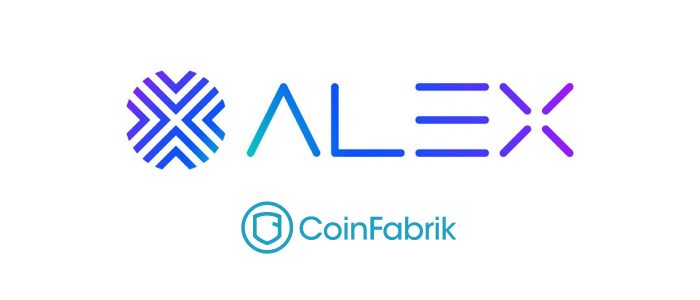Libra Cryptogate could change crypto regulation forever
The $LIBRA scandal could influence future regulatory policies not only in Argentina but worldwide. The ‘Libra Cryptogate’ scandal has highlighted the dangers of unregulated financial assets promoted by public officials. Let’s explore why it could change crypto regulation forever.
In February 2025, Argentine President Javier Milei promoted the cryptocurrency $LIBRA, which ultimately resulted in a financial and political scandal known as “Libra Cryptogate.” As a result of his endorsement, $LIBRA’s value skyrocketed, reaching a market capitalization of over $4 billion. However, shortly after, it crashed, causing significant losses for investors. In fact, estimates indicate that 86% of traders who invested in $LIBRA lost money, with total losses reaching approximately $251 million.
The collapse of $LIBRA further damaged the reputation of the Solana blockchain, on which the cryptocurrency was based. Consequently, this led to a significant drop in the value of its native token. Moreover, investigations revealed that following the crash, approximately $7.8 million in SOL was withdrawn from liquidity funds linked to the $LIBRA team, directly contributing to Solana’s price decline.
Additionally, the proliferation of memecoins on the Solana network has raised concerns about network congestion and reputational issues, affecting the institutional perception of the platform.
Politically, the incident led to the opposition calling for an impeachment trial against Milei and the filing of more than 100 criminal complaints against him, including fraud and illicit association allegations.
In response, Milei ordered the Anti-Corruption Office to investigate the case and defended his actions, comparing investors’ losses to gambling. This event has sparked a significant debate on cryptocurrency regulation and the responsibility of public officials in promoting such financial assets.
Libra Cryptogate Scandal Shakes Argentina
The scandal known as “Libra Cryptogate” has sparked an intense debate regarding cryptocurrency regulation and the responsibility of public officials in promoting financial instruments. Specifically, on February 14, 2025, Argentine President Javier Milei publicly promoted a new cryptocurrency called $LIBRA through his social media accounts.
As a result of this promotion, the coin experienced a meteoric rise in value. However, soon after, it suffered a sharp collapse, leading to significant losses for numerous investors. Consequently, this event, dubbed “Libra Cryptogate,” has further intensified debates over the need for stricter cryptocurrency regulations and the responsibility of political leaders when endorsing unregulated financial assets.
Promotion and Collapse of $LIBRA
Following Milei’s promotion of $LIBRA, the cryptocurrency’s value soared exponentially, reaching a market capitalization of approximately $4 billion. However, within hours, $LIBRA’s value plummeted, leaving more than 40,000 investors with substantial losses.
Subsequent investigations revealed that eight wallets linked to $LIBRA’s creators withdrew approximately $99 million before the collapse, suggesting a potential financial fraud.
The collapse of $LIBRA triggered a series of political and legal reactions. The Argentine opposition called for an impeachment trial against President Milei, accusing him of promoting a fraudulent investment. Additionally, the Argentine Anti-Corruption Office announced an investigation to determine the possible involvement of government officials in the scandal.
The $LIBRA scandal had significant repercussions on Argentine financial markets. The country’s main stock index experienced a notable drop following the cryptocurrency’s collapse, reflecting investor distrust and the inherent volatility of the cryptocurrency market. The promotion of $LIBRA by President Milei has damaged his credibility and eroded public trust in his administration. The perception of a lack of due diligence in endorsing a fraudulent cryptocurrency has sparked criticism from both the opposition and the general public.
The scandal has undermined public confidence in cryptocurrencies, highlighting the risks associated with investing in unregulated digital assets. Many investors, lured by the presidential endorsement, now face significant losses, which could deter future investments in the sector. This event has intensified discussions regarding the need for stricter regulations in the cryptocurrency market. While some advocate for stricter government oversight to protect investors, others argue that excessive regulation could stifle innovation in the financial sector.
Cryptocurrency Regulation Oversight
The event has exposed the potential dangers of unregulated digital assets, prompting calls for more stringent policies to prevent fraud and financial manipulation. However, the discussion remains highly polarized, with diverging views on the optimal regulatory approach for the cryptocurrency sector.
Arguments for Stricter Regulation
Proponents of stronger government oversight argue that the collapse of $LIBRA illustrates the urgent need for a comprehensive legal framework governing cryptocurrencies. Some of the key reasons behind these calls include:
-
Investor Protection: Without clear regulatory structures, scams, market manipulation, and sudden crashes like the one with $LIBRA continue to threaten retail investors. Stricter regulations could mandate risk disclosures, impose stricter due diligence on token issuers, and enhance consumer protections.
-
Prevention of Financial Crimes: Authorities have linked unregulated cryptocurrency markets to money laundering, tax evasion, and illicit financial activities. Regulatory measures, such as Know Your Customer (KYC) and Anti-Money Laundering (AML) policies, could help mitigate these risks.
-
Market Stability: The extreme volatility of cryptocurrencies frequently disrupts markets, impacting not only crypto investors but also traditional financial sectors. Regulatory oversight could reduce speculation-driven crashes and improve transparency in the industry.
-
Increased Institutional Adoption: Many institutional investors hesitate to enter the cryptocurrency space due to the absence of clear regulations. By defining a solid legal framework, governments could encourage responsible adoption of blockchain technologies by traditional financial institutions.
Concerns About Overregulation
Crypto advocates and industry leaders warn that excessive regulation stifles innovation and reduces the benefits of decentralized finance (DeFi). Key concerns include:
-
Threat to Decentralization: The cryptocurrency community values decentralization and financial sovereignty, arguing that excessive government intervention contradicts blockchain’s fundamental principles.
-
Hindrance to Innovation: Technological experimentation and innovation have fueled the cryptocurrency sector’s rapid growth. Restrictive regulations discourage new startups from entering the market, limiting advancements in the industry.
-
Regulatory Arbitrage: Strict regulations in one country push blockchain projects and cryptocurrency companies to relocate to jurisdictions with more lenient policies, creating a fragmented global regulatory landscape.
-
Potential for Government Overreach: Crypto advocates argue that certain regulations grant governments excessive control over digital assets, undermining financial privacy and personal freedom.
Global Regulatory Trends
The Libra Cryptogate scandal has intensified regulatory discussions in Argentina, but the debate extends beyond national borders.
- The United States: U.S. regulators, including the Securities and Exchange Commission (SEC) and Commodity Futures Trading Commission (CFTC), continue increasing scrutiny on cryptocurrencies. Recent enforcement actions against crypto exchanges and token issuers indicate an imminent shift toward tighter regulations.
- The European Union: The EU introduced the Markets in Crypto-Assets (MiCA) regulation to standardize cryptocurrency oversight across member states, setting a model for other regions.
-
Asia: Countries like Japan and South Korea enforce strong regulatory frameworks, requiring crypto businesses to follow strict security measures and AML laws. Meanwhile, China has completely banned cryptocurrency trading while promoting its own state-controlled digital currency.
-
Latin America: The Libra Cryptogate scandal will likely influence Argentina’s crypto policies and may set a precedent for how other Latin American nations regulate digital assets.
What’s Next for Crypto Regulation?
The $LIBRA scandal has placed immense pressure on governments and regulatory bodies to take decisive action. Argentina faces critical decisions on whether to implement stricter laws, licensing requirements for crypto projects, or new taxation policies.
This scandal has amplified ongoing debates over cryptocurrency regulation, raising concerns about market stability, investor protection, and government oversight. Balancing investor security with financial innovation will continue shaping the future of cryptocurrency regulation—not just in Argentina, but globally.
The $LIBRA case is not the first instance in which a political leader has been involved in cryptocurrency promotion.
In 2021, then Congressman Javier Milei endorsed an investment platform called CoinX, which was later accused of fraud, affecting thousands of investors. This pattern of behavior underscores the need for greater responsibility and due diligence among public officials endorsing financial projects.
Conclusion
Historically, cryptocurrency regulation has been a controversial issue. While some countries have adopted proactive approaches to integrate cryptocurrencies into their financial systems, others have implemented strict restrictions to mitigate fraud risks and market volatility. The economic, political, and social repercussions of this event underscore the need for stricter regulations in the cryptocurrency market and greater accountability among political leaders.

















